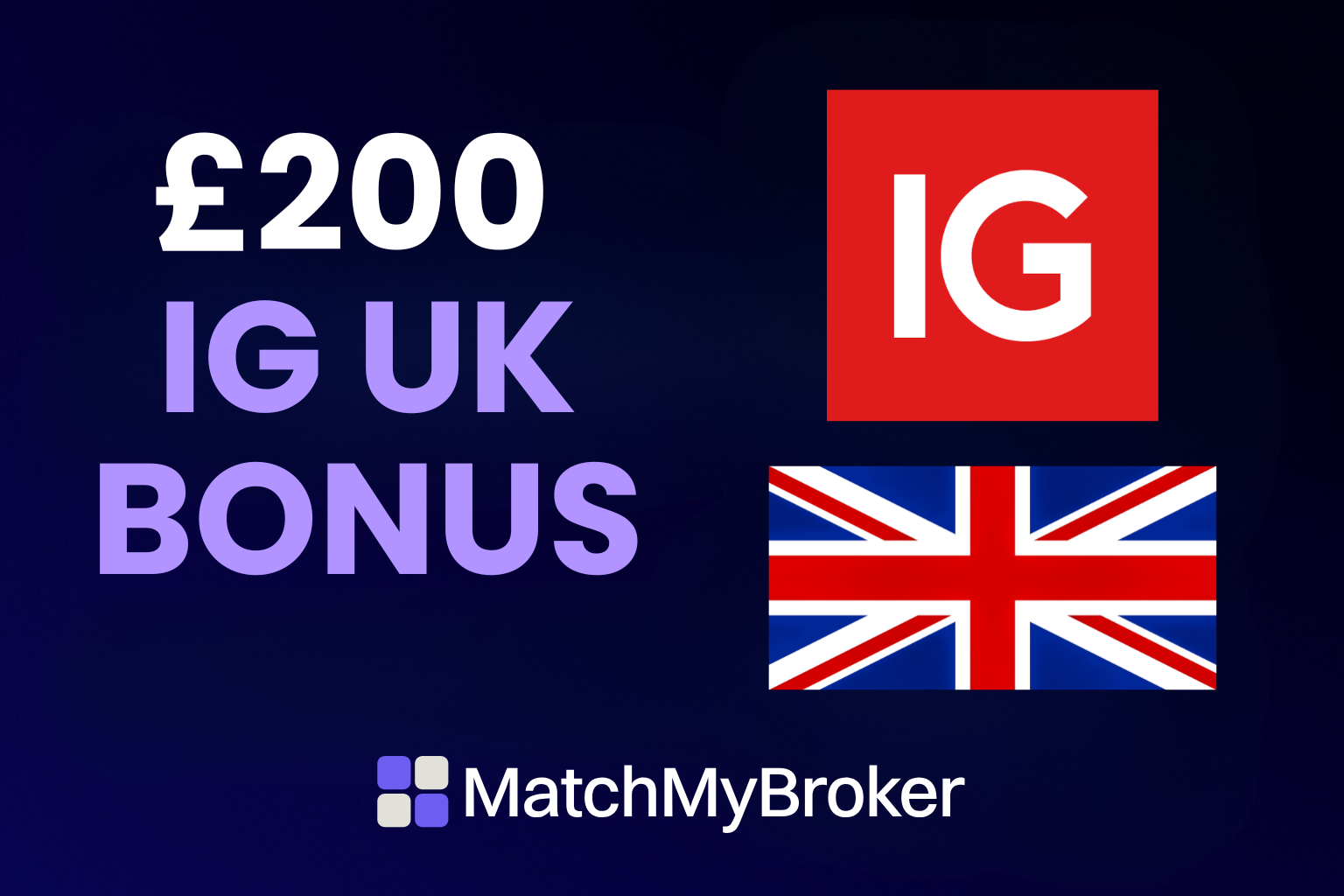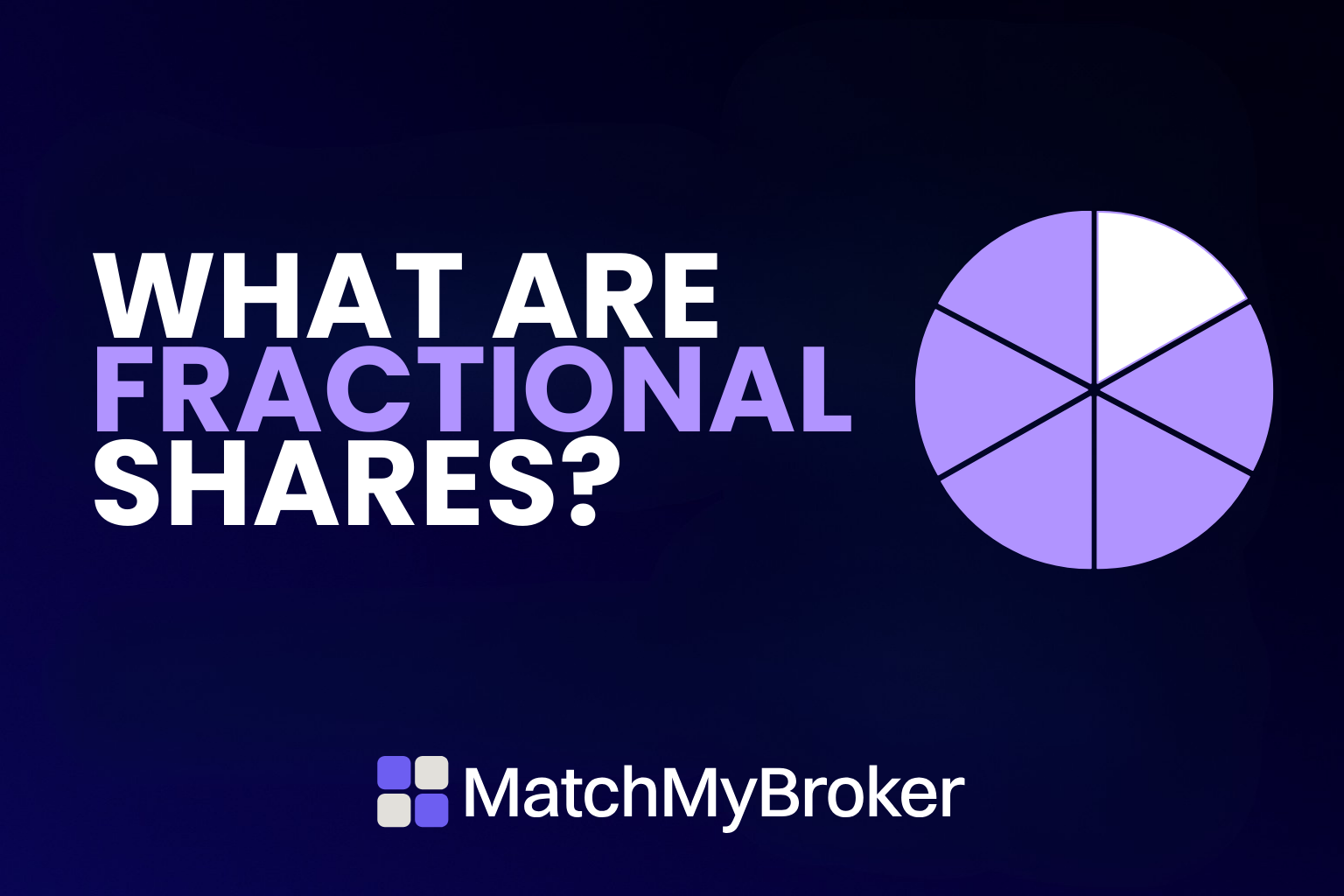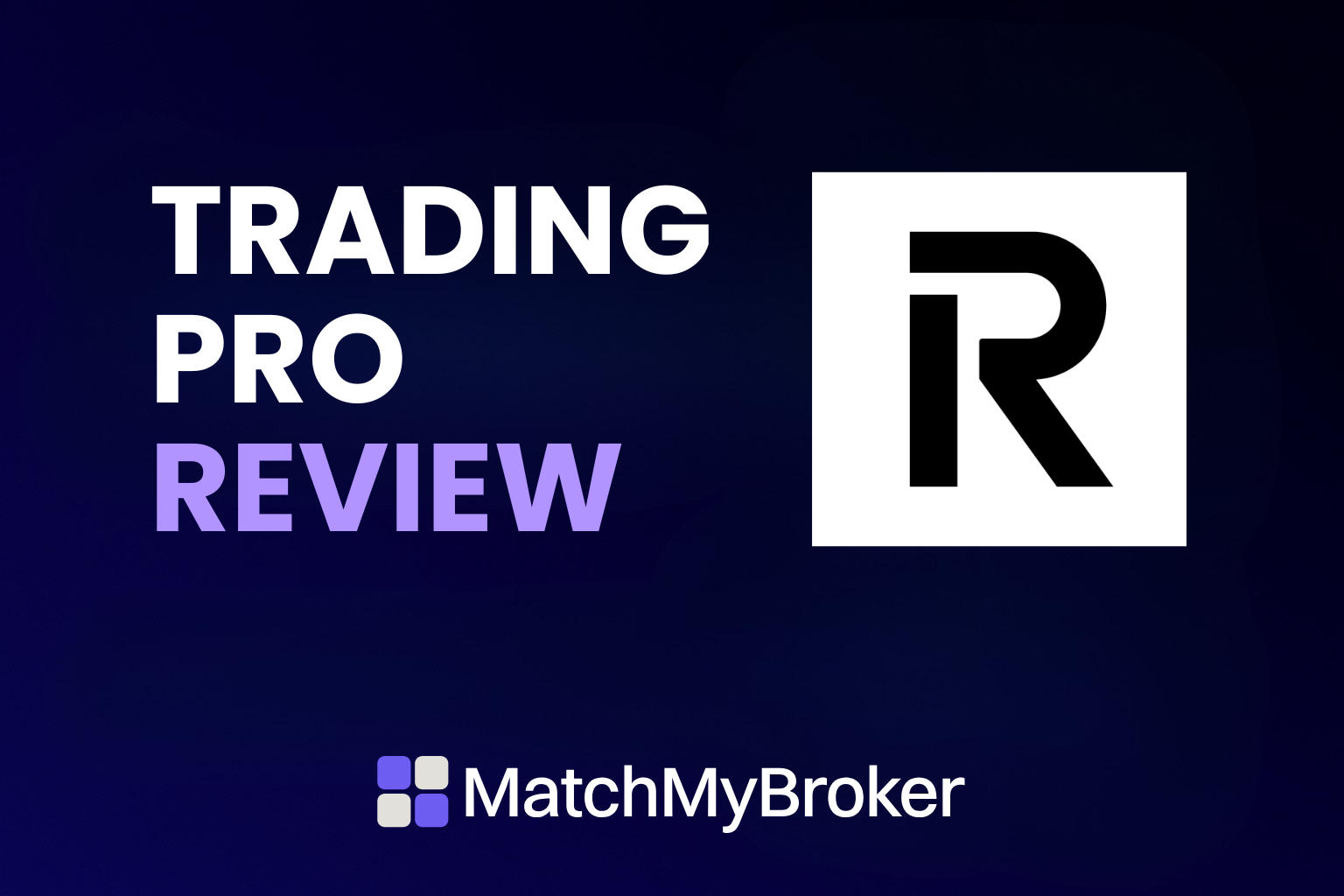Trading 212 vs Interactive Brokers: Which Broker Is Right for You?


When choosing between Trading 212 and Interactive Brokers, investors often face a classic trade-off: simplicity versus power. Both brokers offer commission-free stock and ETF investing, but they serve different types of investors with distinct needs and preferences.
We've extensively tested both platforms, and our analysis reveals that while Trading 212 excels in user experience and accessibility, Interactive Brokers dominates in advanced features and global reach. However, there's an important caveat that many investors don't realize: these platforms aren't direct competitors in the traditional sense.
Our Verdict: Two Different Philosophies
After thorough testing, we found that Trading 212 and Interactive Brokers represent two fundamentally different approaches to investing. Trading 212 prioritizes simplicity and user-friendliness, making it perfect for beginners and passive investors. Interactive Brokers, meanwhile, offers institutional-grade tools and global access that appeal to serious long-term investors and active traders.
Interestingly, these brokers share a unique relationship that most investors don't know about. Trading 212 actually uses Interactive Brokers as one of its custody partners, with client assets held in segregated accounts through Interactive Brokers' infrastructure. This means your Trading 212 investments benefit from Interactive Brokers' institutional-grade custody services while enjoying Trading 212's streamlined interface.
Trading 212: Simplicity and Accessibility
Strengths We Discovered
User Experience Excellence
Our testing revealed Trading 212's greatest strength: its intuitive, mobile-first design. The platform feels more like a modern fintech app than a traditional broker, with clean interfaces and straightforward navigation that makes investing accessible to everyone.

True Commission-Free Investing
Trading 212 offers genuinely commission-free trading on stocks and ETFs with no hidden fees or custody charges. This makes it ideal for dollar-cost averaging and regular investing without worrying about fees eating into returns. New users can also take advantage of the Trading 212 welcome bonus, which provides free fractional shares to get started.
Multiple Account Types
The platform offers both Invest and CFD accounts, giving users flexibility in their trading approach. We explore the differences between Trading 212 Invest vs CFD in detail, but for most investors, the Invest account is the better choice for long-term wealth building.
Competitive Cash Interest
The platform pays competitive interest on uninvested cash, adding value for investors who maintain cash positions between trades.
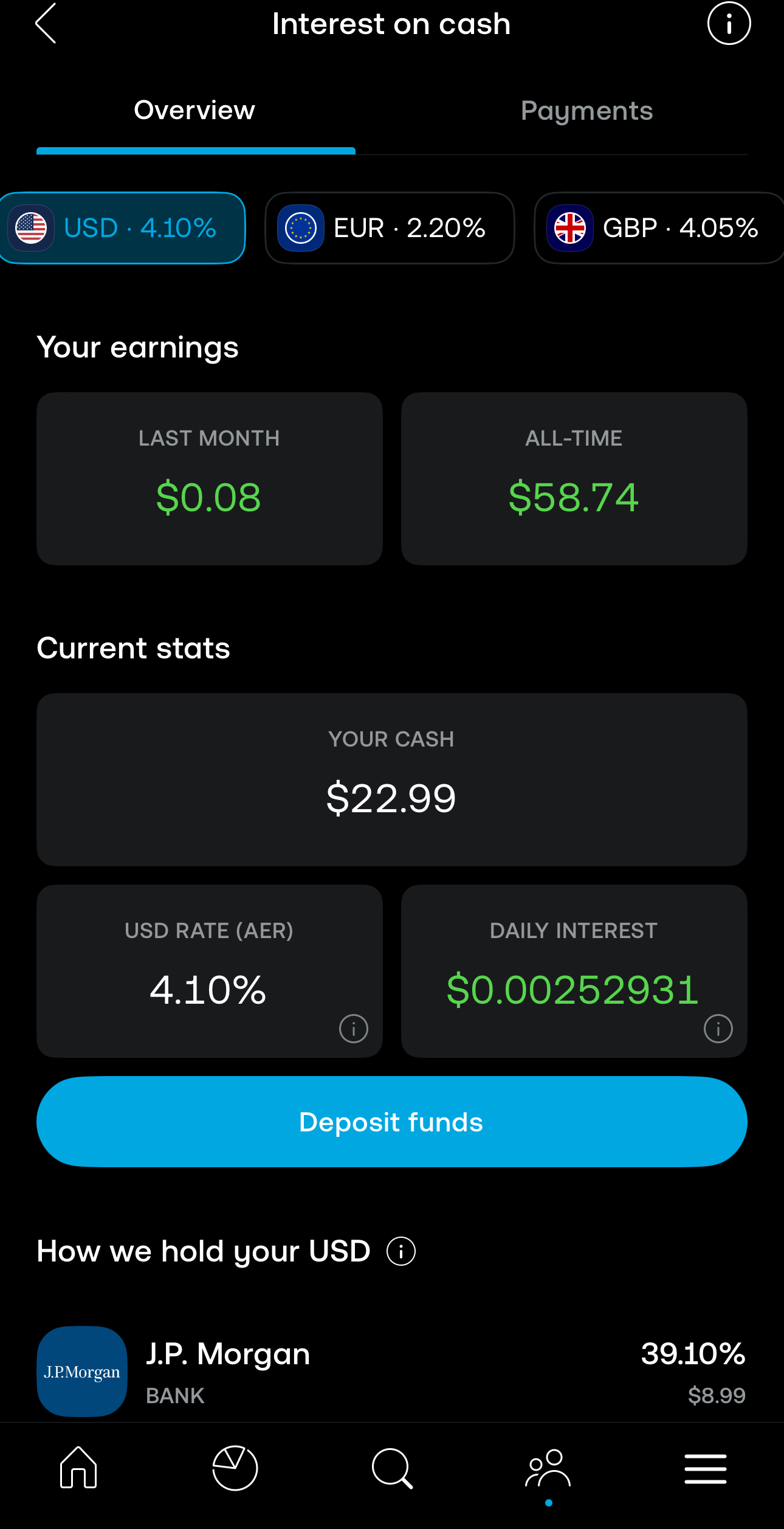
Share Lending Program
Trading 212 offers an optional share lending program where you can earn interest on your shares by lending them to institutional borrowers. This feature is completely optional and can provide additional passive income.
Trading 212 Card
A unique feature is the Trading 212 Card, which allows you to spend directly from your investment account. This can be particularly useful for managing cash flow and accessing your funds when needed.
Limitations We Found
Limited Advanced Features
While the simplicity is Trading 212's strength, it's also a limitation for investors seeking advanced tools, research capabilities, or sophisticated order types.
Transfer Restrictions
Portfolio transfers are now available, but the feature was only recently rolled out to all customers as of July 2025. Additionally, you can only transfer whole shares, and any stocks not available on Trading 212's platform cannot be transferred.
Interactive Brokers: Power and Global Reach
Strengths We Identified
Unmatched Global Access
Interactive Brokers offers access to markets worldwide, making it ideal for investors seeking international diversification. The platform supports trading in over 160 market centers across 36 countries from a single integrated account.
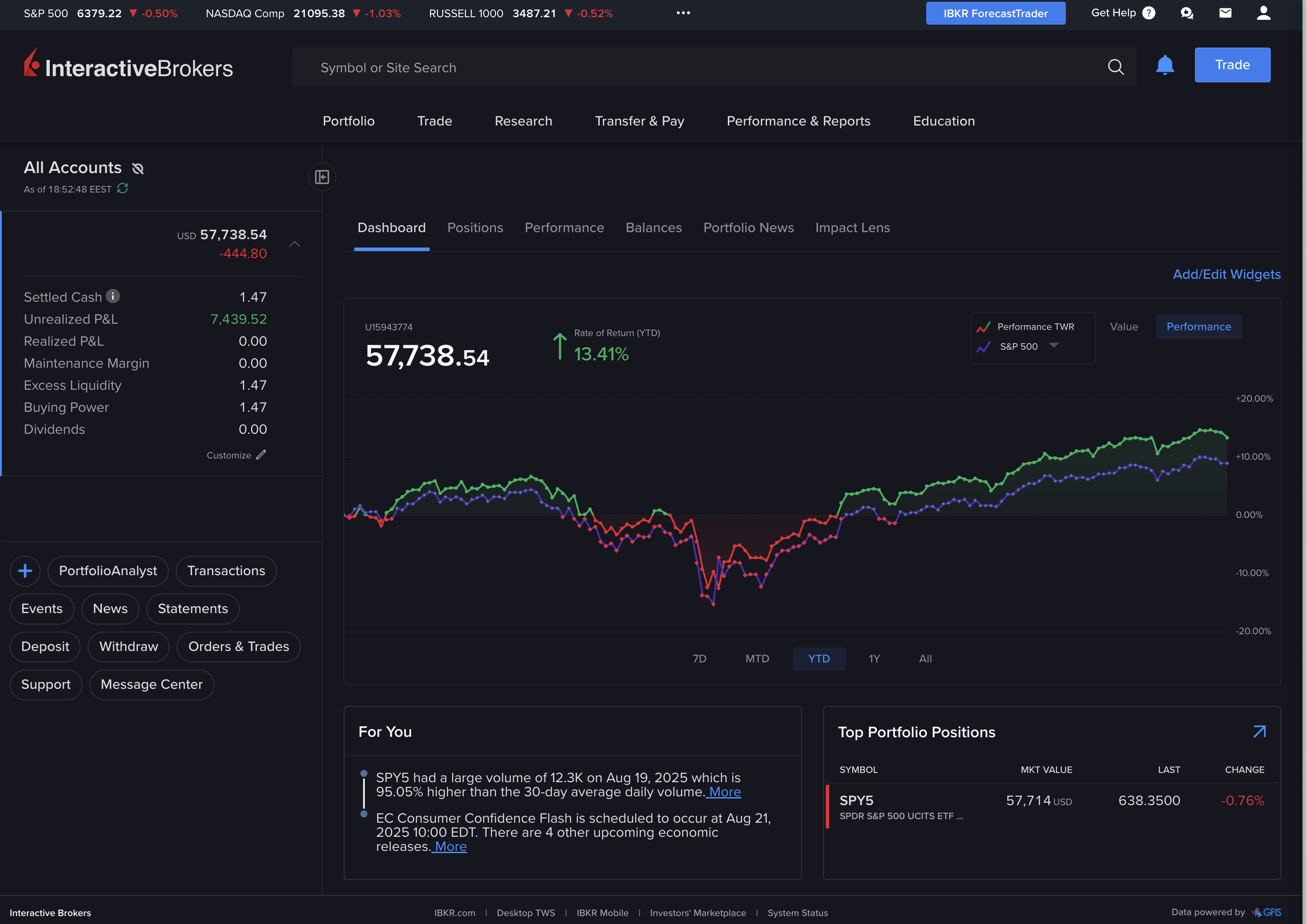
Account Portability
One significant advantage we discovered is Interactive Brokers' ability to relocate accounts when you move countries. This feature allows you to maintain your positions without selling and triggering tax events, which is currently impossible with Trading 212.
Institutional-Grade Infrastructure
As a publicly listed company with decades of experience, Interactive Brokers offers the security and stability that serious investors value. The platform provides extensive research tools, advanced order types, and professional-grade features.
Stock Yield Enhancement Program
Interactive Brokers offers a Stock Yield Enhancement Program that allows eligible accounts to earn additional income by lending shares. This program can provide meaningful additional returns for long-term investors.
Challenges We Observed
Complexity Barrier
Our testing confirmed that Interactive Brokers has a steeper learning curve. With three different apps and extensive features, new users can feel overwhelmed initially.
Interface Design
While improving, the platform's interface still lags behind Trading 212's modern, intuitive design. This can make simple tasks more complicated than necessary.
Portfolio Transfer Reality Check
Here's something crucial that many investors don't understand: despite Trading 212 using Interactive Brokers for custody, you cannot directly transfer portfolios between these two platforms. Both brokers support portfolio transfers, but not to each other.
What You Can Do:
- Transfer from other supported brokers to either platform
- Interactive Brokers accepts transfers from numerous global brokers through ACATS (US) and manual European transfers
- Trading 212 supports transfers from a growing list of brokers, but availability varies
What You Cannot Do:
- Direct transfer from Trading 212 to Interactive Brokers
- Direct transfer from Interactive Brokers to Trading 212
Fee Comparison: Both Are Competitive
In our fee analysis, both brokers offer excellent value, but in different ways:
Trading 212:
- Zero commission on stocks and ETFs
- No custody fees
- No account fees
- Very low 0.15% FX fee
Interactive Brokers:
- Zero commission on US stocks and ETFs (with IBKR Lite)
- Tiered pricing available for active traders
- Low margin rates
- Excellent international FX rates
Our Investment Philosophy: The Multi-Broker Approach
Based on our extensive testing and experience, we recommend a diversified broker strategy. Rather than choosing one platform exclusively, consider using both brokers for their respective strengths:
Use Trading 212 For:
- Simple, regular investing
- Dollar-cost averaging
- Cash ISA with competitive interest
- Mobile-first investing experience
Use Interactive Brokers For:
- International diversification
- Advanced trading strategies
- Long-term wealth building
- Portfolio flexibility and global mobility
This approach provides redundancy, access to different features, and protection against platform-specific risks.
Who Should Choose What?
Choose Trading 212 If You:
- Prioritize simplicity and ease of use
- Invest primarily in stocks and ETFs
- Want a mobile-first experience
- Prefer minimal complexity
- Are focused on UK/EU markets
- Want to claim free fractional shares to get started
Get started with Trading 212's welcome bonus
Choose Interactive Brokers If You:
- Want global market access
- Plan to move countries
- Need advanced research and tools
- Have complex investment strategies
- Value institutional-grade infrastructure
- Want to maximize returns through stock lending
Open your Interactive Brokers account
The Bottom Line
Both Trading 212 and Interactive Brokers are excellent brokers that we actively use and recommend. Trading 212 excels in simplicity and user experience, making investing accessible to everyone. Interactive Brokers provides institutional-grade features and global reach for serious long-term investors.
The relationship between these platforms, with Trading 212 using Interactive Brokers for custody, demonstrates that they're not direct competitors but rather serve different segments of the investing ecosystem. Rather than viewing this as an either-or decision, consider how both platforms might fit into your overall investment strategy.
Ready to get started? Claim your free fractional shares with Trading 212 or open an Interactive Brokers account to begin building your global portfolio.
Remember, we're strong advocates for diversifying not just your investments, but also the platforms where you invest. Using multiple brokers provides redundancy, access to different features, and protection against any single platform's limitations.
Looking for personalized broker recommendations? Try our Broker Match Tool to find the perfect platform for your specific needs and investment goals.
Frequently Asked Questions
Can I transfer my portfolio directly from Trading 212 to Interactive Brokers?
No, direct portfolio transfers between Trading 212 and Interactive Brokers are not currently possible, despite Trading 212 using Interactive Brokers for custody services. Each platform maintains separate client relationships and transfer protocols.
Which broker is better for beginners?
We strongly recommend Trading 212 for beginners due to its intuitive interface, commission-free structure, and simplified investing process. The platform removes barriers that often intimidate new investors.
Does Interactive Brokers really allow account relocation between countries?
Yes, Interactive Brokers can relocate your account when you move to a different country, allowing you to maintain your positions without selling and triggering tax events. This feature is particularly valuable for expats and frequent movers.
Is my money safe with Trading 212 given its relationship with Interactive Brokers?
Absolutely. Trading 212 operates under strict regulatory oversight from the FCA (UK) and CySEC (Cyprus). Client assets are held in segregated accounts through custody partners including Interactive Brokers, providing institutional-grade protection.
Can I use both brokers simultaneously?
Yes, and we actually recommend this approach. Using both brokers allows you to leverage Trading 212's simplicity for regular investing while accessing Interactive Brokers' advanced features and global markets when needed.
Which broker offers better customer support?
Our experience shows both brokers provide adequate support, but through different channels. Trading 212 offers live chat and email support with faster response times, while Interactive Brokers provides more comprehensive support but with potentially longer wait times.
Are there any hidden fees I should know about?
Both brokers are transparent about their fee structures. Trading 212 truly operates commission-free with no hidden costs, while Interactive Brokers clearly outlines its fee structure. Always review the latest fee schedules on each platform's website.
Risk Disclaimer. Trading involves significant risk and may not be suitable for all investors. The value of investments can go down as well as up, and you may lose some or all of your initial investment. Past performance is not indicative of future results. We recommend only investing money you can afford to lose and ensuring you fully understand the risks involved before trading.
